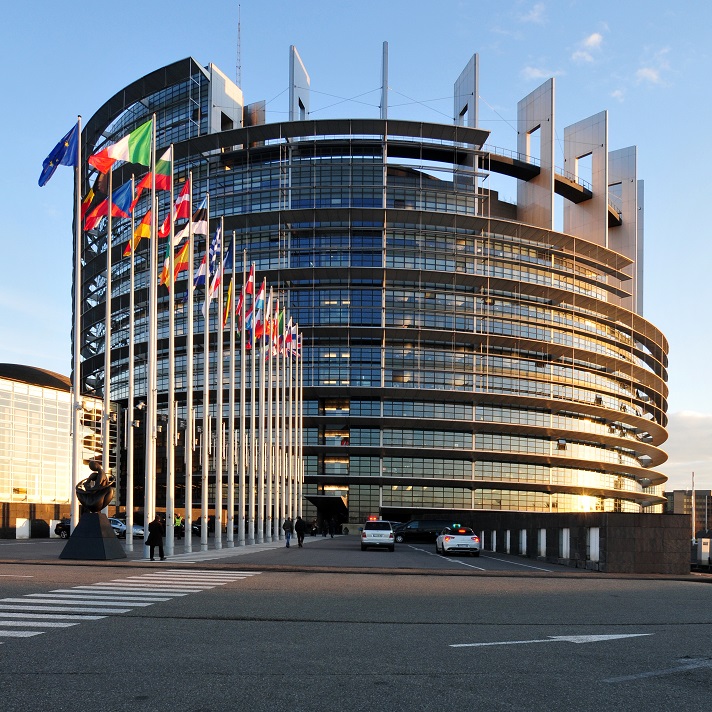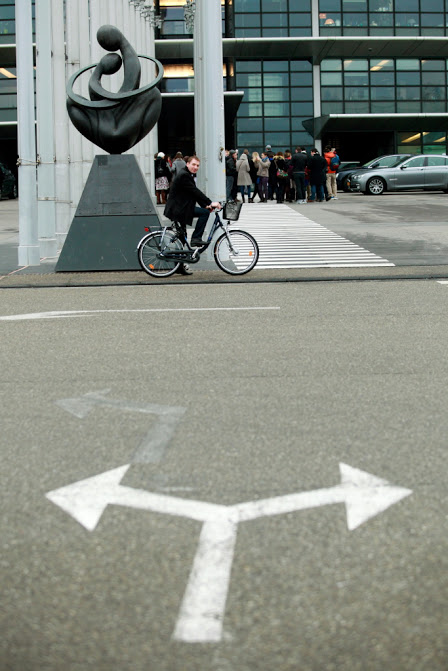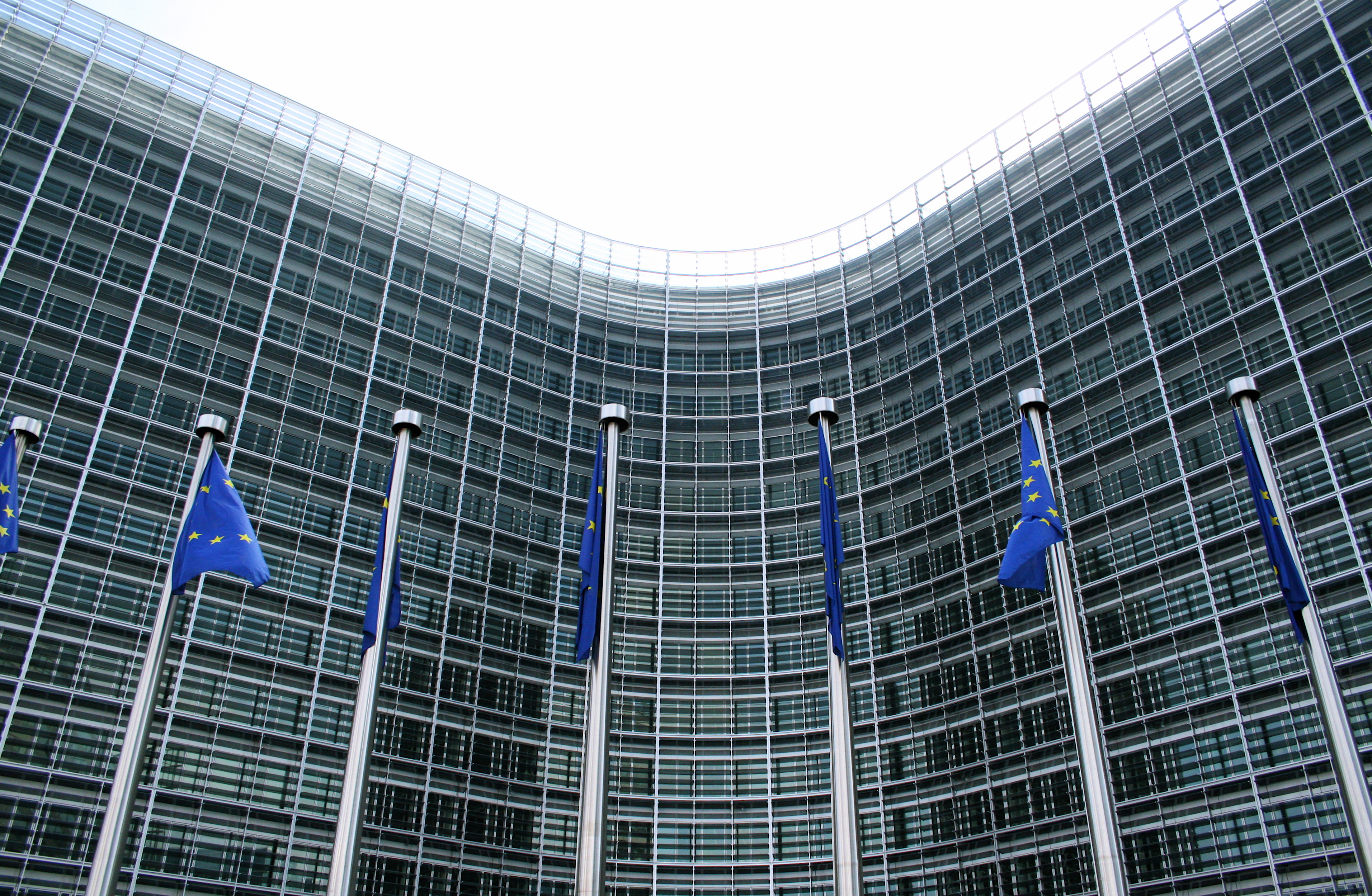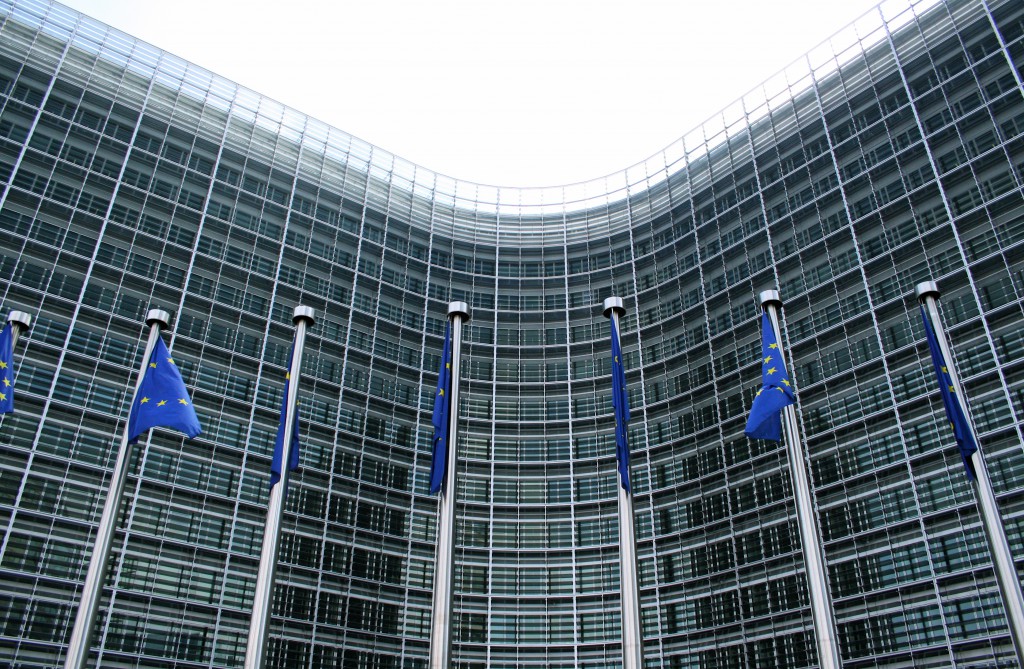The aftermath of the Ukrainian crisis, the Russian military intervention and undeclared war in eastern Ukraine brought about a crucial change in EU’s foreign affairs. Russia can no longer be regarded as a fully reliable partner to the EU. The issue is highly relevant today as the city of Mariupol in eastern Ukraine were recently assaulted by pro-Russian separatists, using weapons obviously supplied by Russia. The new understanding of a conflict-oriented and imperial rationality based attitude of the Russian leadership caused a substantial shift in the EU’s Russia-politics substantially – and raises security questions not only at European level but also at the global scale. The military conflict also brought to the forefront the issue of energy security, the need to reduce all forms of energy dependency from Russia and it underlines the importance of the EU speaking with one voice in energy policy as well as in its foreign policy. (Benedek Jávor’s article in Green European Journal)
The Russian-Ukrainian crisis, which unfolded after the Ukrainian revolution in 2014 and resulted in the Russian annexation of the Crimea and the destabilization of Eastern Ukraine largely affected the EU-Russia relations.
Russia is the EU’s biggest neighbour and its third biggest trading partner. In the last decades, the EU’s Russia-politics have been characterized by mutual recognition and increasing cooperation, which was evident not only in the fields of trade and economic cooperation. The so-called common spaces cover aspects such as research, culture, education, environment, freedom and justice. Moreover, negotiations have been on-going since 2008 to further strengthen the partnership and have legally binding commitments in all areas including political dialogue, freedom, security and justice, research, culture, investment and energy. After 2010 the Partnership for modernization has become the focal point for cooperation, reinforcing dialogue initiated in the context of the common spaces.
The role of Russia in the Ukrainian crisis, however shed light on the fact that Russia is not on the perceived track in the process of democratization and modernization, that is to say, Russian politics did not become more moderate through the cooperation with the EU, on the contrary.
Even if we accept the experts’ argumentation for the need for a ‘buffer zone’ between the EU and Russia, illegal annexation of the Crimea by Russia and the continuous destabilization of Eastern Ukraine including aggression by Russian armed forces on Ukrainian soil cannot be considered acceptable in any sense and give a clear indication of the unchanged aggressive nature of Russian politics and leadership. It became clear that Putin is primarily led by imperial rationality and now it seems that Putin’s Russia is no longer interested in a trustworthy and functional relationship with the EU.
The question is highly relevant today after a series of rocket attacks in Mariupol by pro-Russian separatists. Against this background, the current EU presidency has called a council of EU foreign ministers to prepare the ground for a summit of EU leaders on the crisis with Russia and the role the EU should take.
Indeed, the developments over the past two years call for a new interpretation of Russian-EU relationship as they demonstrate that Putin’s Russia is impossible to handle with peaceful approaches and methods based on seeking consensus.
It is all the more important that the EU speaks one voice and acts in a united manner. And this is exactly what is missing.
Some EU member states including Poland and the Baltic states regularly use a strong anti-Russian rhetoric, while others, such as Hungary take political decisions showing an opening towards Russia. These seeming contradictory attitudes expressed in the rhetoric and concrete choices, however, might stem from a common fear from growing Russian influence- partly due to historical reasons. The only difference lies in the role these national governments attribute to the EU (or the US) in handling the conflict, depending on the extent they believe that the EU is willing and able to send clear signals to Russia.
Germany itself, having a huge influence on EU politics, has recently re-evaluated the Russian relationship. Before, Germany had the standpoint that a close economic cooperation can have a stabilizing effect on Russia and reduce the possibility of aggressive geopolitical measures. They hoped that this cooperation might also further the modernization of the Russian economy and thus it can contribute to the creation of a Russian state that is linked to the world economy not only through its energy export, but with many other ties and which has its interests in sustaining the balance of international relationships. Germany, however, has realised that these presuppositions and hopes were wrong. Chancellor Merkel placed harsh measures and persecutes consistently the sanctions that the EU adopted in response to Russia’s military intervention in the Ukraine.
The sanctions in place include the suspension of most cooperation programmes, suspended talks on visas and the new EU-Russia agreement as well as restrictive measures targeting sectorial cooperation in the fields of defence, sensitive technologies including those in the energy sector. Russian access to capital markets is also restricted. The European Investment Bank and the European Bank for Reconstruction and Development have suspended the signing of new financing operations in Russia and a trade and investment ban is in force for the Crimea region.
These sanctions, however, are somewhat questionable in their effect and will expire in the course of 2015 unless all 28 Member States of the EU agree to renew them. Chancellor Merkel called for joint European action and during their December Council meeting various EU leaders stressed that the EU should maintain the sanctions until Russia changes its behaviour and stops the aggression in Ukraine.
Thus, the EU must again discuss economic sanctions against Russian, as well as how to ensure aid and protection for the civilian population in eastern Ukraine. In this respect, again, speaking with one voice is essential.
Finding a new balance in the EU-Russian relations is key in the broader context, for the sake of a global equilibrium as well. Russia might opt for building stronger links to China.
These recent developments with Russia have also point the attention to issue of energy security in the EU, which is very high on the political agenda now.
However, the impacts of Russia’s nuclear investments in the EU are not seriously considered.
We are all aware that the EU is extremely dependent on external energy sources, mainly coming from Russia. (And vica versa, supplies of oil and gas make up a large proportion of the Russia’s exports to Europe which are crucial for the Russian economy. The recent collapse of the Russian economy due to the rapid fall of oil prices is a clear proof for this, which has also shown that the country’s self-confidence was merely stemming from high oil prices.)
The dependency on Russian fossil fuels, the lack of diversification of energy sources have been widely recognised in the EU’s energy policy. However, these are only part of the whole picture. The impacts of Russia’s fossil or nuclear investments in the EU are hardly considered in the energy-related acquis, even though it is obvious that through its energy corporations, the Russian government has means of influence far beyond the mere business transactions.
Energy dependency can appear in multiple forms including financial, technology or fuel dependence in the nuclear and fossil sectors, acquisition and ownership of strategic energy infrastructure as well as investments in energy projects by Russia in EU, in particular the Baltic and the Central-Eastern member states.
Here again, we see no unified behaviour from EU member states. Some EU member states have reconsidered their cooperation with Russia, or Rosatom in particular as a consequence of the crisis in Ukraine, e.g. Germany refused to sell the gas storage capacities to Russia, Bulgaria refused a second Rosatom nuclear plant, Slovakia stopped negotiations with Rosatom, and UK suspended its negotiations with Rosatom. At the same time, some EU countries such as Finland or Hungary still consider building new nuclear power plants partly using Russian financial sources, technology, fuel and waste management facilities. It is the responsibility of EU bodies is to ensure that decisions in any Member State do not undermine the energy security of the EU as a whole.
Equally importantly, the EU should think out of the box and look beyond route diversification and new infrastructure projects, when it comes to improving energy security.
A systemic, long term solution for the problem is increased energy efficiency with special attention to the transport sector, residential buildings and industrial sites and the wide-scale use of local, renewable energy sources building upon, inter alia, novel financial solutions and community-based models.
Energy efficiency and renewables projects could contribute to reducing all forms of energy dependencies.
To conclude: even if the hopes of the EU for the stabilization and democratization of Russia have failed to come true, geopolitical realities are given. The EU has to reassess its relationship with Russia, to act firmly in a united manner and to tackle security threats at all levels, including in the field of energy policy. The EU should work for a healthier relationship with Russia in this regard as well, by systemically reducing its dependency, wherever possible – yet acknowledging determinations, long-term mutual dependencies which can be used as a basis for the new balance.




